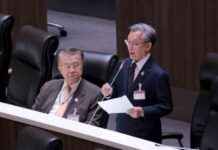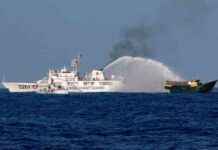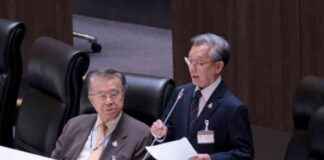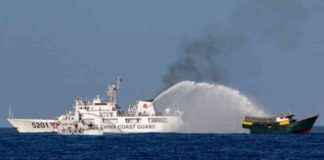Thai PM and Minister of Interior to Lead Relief Efforts in Flooded Areas
Tomorrow, Thai Prime Minister Phumtham Vechayachai and Minister of Interior Kalahome Kalahom will be deploying relief efforts to the flooded areas of Chiang Mai and Chiang Rai. The situation in these regions has been described as critical, with urgent measures needed to address the flooding and landslides that have occurred.
During a meeting at the government house, Phumtham emphasized the gravity of the situation and the need for immediate action. He stated that while the situation in the northeastern region may not be as dire as in other areas, it is still a cause for concern and requires swift resolution. The main focus of the relief efforts will be on the Mae Sai district in Chiang Rai and the Mueang district in Chiang Mai, where the flooding and landslides have caused significant damage.
Assessing Additional Aid Measures
In preparation for the deployment of relief efforts, discussions are underway regarding additional aid measures that may be necessary to support the affected areas. The government is considering various options, including providing financial assistance for economic and social development, allocating budget resources, and forming a committee to review legislation related to disaster relief.
Phumtham emphasized the importance of considering the specific needs of each area and tailoring aid measures accordingly. He stressed the need for a coordinated approach involving various government agencies, volunteers, and the military to ensure that relief efforts are effective and efficient.
Challenges and Response Strategies
One of the major challenges facing the relief efforts is the cleanup and recovery process in the worst-hit areas. In Mae Sai and Mueang districts, the landslides have left homes buried under several meters of debris, requiring significant manpower to clear the rubble and restore normalcy.
To address this challenge, the government is mobilizing a diverse workforce, including skilled laborers, volunteers, and military personnel. Phumtham highlighted the importance of coordination among these groups to streamline the cleanup process and minimize delays.
Furthermore, the government is exploring innovative strategies to expedite the recovery efforts, such as utilizing advanced equipment and technology for debris removal and restoration work. By leveraging these resources effectively, the government aims to accelerate the recovery process and mitigate the impact of the disaster on the affected communities.
As the relief efforts continue, ongoing assessments will be conducted to monitor the progress and identify any additional needs that may arise. Phumtham reiterated the government’s commitment to supporting the affected areas and ensuring that all necessary resources are allocated to facilitate a speedy recovery.
In conclusion, the upcoming deployment of relief efforts to the flooded areas of Chiang Mai and Chiang Rai underscores the government’s proactive approach to addressing natural disasters and safeguarding the well-being of its citizens. Through coordinated efforts and strategic planning, the government aims to minimize the impact of the flooding and landslides and facilitate the recovery process for the affected communities.




















